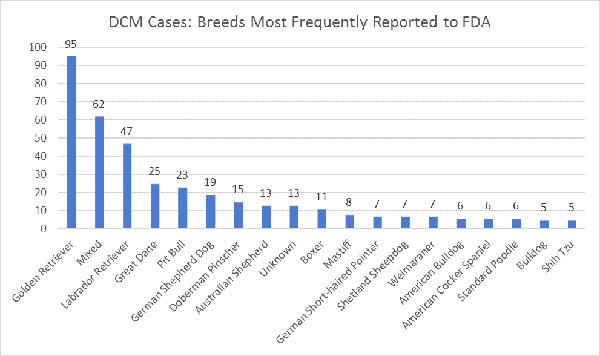Grain Free Food: Naming Names, Not Playing Games
It was about a year ago that the solemn and simple veterinary world became unstably chaotic regarding the Holy Grail of things your aunt’s neighbor recommended for your dog: Grain-Free Food.
The innocent early days of 2018 were carefree and loose, with the veterinary world throwing out lines like “There’s no reason to be on a grain-free diet, but it does no harm.” Owners were happy. Dogs were happy. Your aunt’s neighbor was happy. We left work on time.
And then, as a slow, brooding cello tremolo intensified from below, the FDA and AVMA issued statements about what they had determined was a specific correlation between grain-free food and heart disease.
You can relive the splendor in my August 2018 blog post or directly from the source: https://www.fda.gov/animal-veterinary/news-events/fda-investigation-potential-link-between-certain-diets-and-canine-dilated-cardiomyopathy
Recently, to celebrate the anniversary, the FDA has come out swinging with the names of brands that they had previously only hinted at being at the root of the problem. As the calls come pouring into the clinic for all dogs on these foods, I will try to break down the new news, though this isn’t really new at all. There have been some updates over the last year so I will try to summarize.
First, let’s get the awkward first-date questions out of the way.
What are the brands implicated?
Here are the grain-free food brands and the number of dog deaths linked to their food.
| Acana | 67 |
| Zignature | 64 |
| Taste of the Wild | 53 |
| 4Health | 32 |
| Earthborn Holistic | 32 |
| Blue Buffalo | 31 |
| Nature’s Domain | 29 |
| Fromm | 24 |
| Merrick | 16 |
| California Natural | 15 |
| Natural Balance | 15 |
| Orijen | 12 |
| Nature’s Variety | 11 |
| NutriSource | 10 |
| Nutro | 10 |
| Rachael Ray Nutrish | 10 |
No one specific protein source was identified as the problem. Cases included raw food, semi-moist food, wet food, and dry kibble.
Second, wait … what? What do you mean deaths, what?
Here is a good question-and-answer page from the FDA: https://www.fda.gov/animal-veterinary/animal-health-literacy/questions-answers-fda-center-veterinary-medicines-investigation-possible-connection-between-diet-and
There have been 524 reports of dilated cardiomyopathy (imagine the heart enlarging like a balloon) between 2014 and 2019, and the majority of these occurred in the past 6 months. The United States has about 77 million pet dogs, so this is a small percentage, but these numbers reflect an increase in, most importantly, dog breeds not genetically likely to have dilated cardiomyopathy. (Breeds with a genetic predisposition to DCM include Doberman Pinschers, great Danes, boxers, and Irish wolfhounds.)
There is still a lack of understanding of what is going on. The early worries were that it was related to taurine deficiency, but almost all of the indicted food contained proper levels of taurine. Golden retrievers, specifically, are suspected to contract DCM due to taurine deficiency, but still, no exact information as to how this relates to grain-free diets.
The majority of implicated diets were high in legumes (peas, beans, chickpeas, soybeans, lentils, peanuts) and potatoes, which are generally used to replace the grains. (Rice is a grain, not a legume. Leave rice out of this.)
Third, what should you do?
Let’s be really clear here that 524 deaths is a very low number, but this situation is still very scary, because the FDA is still not sure why these deaths are occurring and how the diet and the deaths are linked. The grain-free-ness may not be the problem, but we just don’t know.
If your dog is dependent on a certain food listed above, it may not be the specific aspect of the lack of grain that is causing the optimal results of a diet, but something else that could be found in a different diet (for example, fiber content). We cannot tell you that you need to switch off of grain-free food, or that you have to drop your allegiance to the brands listed above, but until we know what is doing this, there is some risk.
I do not give my dog a grain-free diet, but I also do not have a dog with any gastrointestinal issues. That being said, grain-allergies are just not a thing in dogs, and, it could be concluded, feeding a grain-free diet is not worth the risk.
Please talk to us if you have questions, and of course, if your dog is suffering from lethargy, weakness, coughing, exercise intolerance, increased respiratory rate/effort, or anything that seems abnormal, please let us know.
Brett Grossman, DVM
Medical District Veterinary Clinic

![[doberman pinscher]](https://www.medicaldistrictvet.com/blog/wp-content/uploads/2019/07/blog-grossman-dcm2.jpg)
